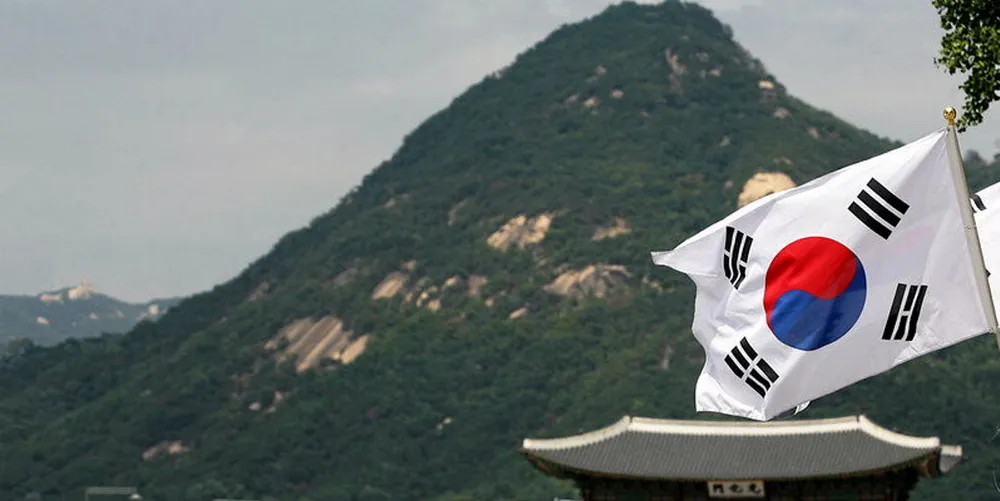South Korea warned decade-long permit queues risk $64bn offshore wind boom
A permitting process that 'typically takes 10 years' and growing unease among fisher folk are among the issues South Korea must address, says GWEC

South Korea stands to reap tremendous economic benefits from the development of offshore wind farms, as long as the country acts to speed up its agonisingly slow permitting process and put in place an effective consensus-building framework, two reports by Global Wind Energy Council (GWEC) found.
With South Korea pursuing the targeted installation of 14.3GW of offshore wind capacity by 2030, GWEC estimated that construction of offshore wind farms could provide more than 770,000 domestic job opportunities and contribute 87 trillion won ($64bn) worth of investments into the economy.
One of the reports showed that strategic coastal cities such as Incheon, Gunsan and Mokpo are especially well-placed to benefit from the promised boom in the construction of offshore wind farms.
GWEC noted however that only 150MW of the targeted 14.3GW capacity have actually been delivered so far, with slow permitting identified as the key factor that is holding the sector back.
GWEC called on South Korea to do more to achieve the streamlining of permitting processes which typically takes 10 years, suggesting that this is the most important step that needs to be taken to ensure the smooth rollout of offshore wind development in the country.
While GWEC noted that South Korea aims to generate 21.6% of its electricity from renewable sources by 2030 and has a national government which recognises the potential of offshore wind to provide reliable, scalable and sustainable sources of electricity, the industry group warned that the commercial development of offshore wind so far remains "gradual".
The report also addressed local acceptance issues, especially the perceived clashes of interests between has given rise to concerns about offshore wind within the fishing community.
Rebecca Williams, global head of offshore wind at GWEC, said: "Offshore wind is a good news story for South Korea.
"Our new report shows that 14.3GW of offshore wind can create a huge energy and economic opportunity, revitalising coastal communities across the country, and playing a role in halting post-industrial decline.
"Today we are setting out a blueprint to unlock the pathway to offshore wind growth in a way which benefits local communities and stakeholders.”
Recommendations included “the urgent passing and implementation of South Korea’s Offshore Wind Power Promotion Act as it is this legislation that is expected to streamline permitting processes to ensure the smooth rollout of offshore wind development in South Korea".
They highlighted the importance of local consensus through education, engagement and trust-building as what Williams called “a crucial first step to rolling out policies for offshore wind development”.
The reports recommended that local and national governments should work with industry to put in place a holistic plan to seize the benefits of offshore wind.
They also encouraged the national government to explore increasing the number of Free Economic Zones, develop standardised community engagement guidelines, and continue to provide incentivisation mechanisms to facilitate the growth of the offshore wind industry and promote regional economic development.
GWEC underlined the role that local governments can play in implementing a strategic approach to engage key stakeholders, and advocate empowering local workforces and strengthening international networks as strategies that support offshore wind development.
Yunsoung Kim, Professor at Energy and Space Korea, said, "Development of offshore wind farms will be a very important opportunity for regions that are at risk of declining. I hope they seize this chance to rejuvenate."
Among its recommendations, GWEC also included a call for South Korea to conduct post-legislation discussions to address issues facing projects with Electricity Business Licenses (EBLs), as well as defining government roles, and incorporating community coexistence plans as bid requirements.
GWEC also proposed that local governments establish public-private councils, formulate regional wind master plans, and encourage collaboration with various stakeholders to prioritise community-focused offshore wind development.
Consenting challenge
GWEC said its reports were meant to offer guidance on how to build support for offshore wind in local communities and with the fisheries industry, based largely on international practices.
Cho Kong-jang, Director General of Sustainability Strategy Research Group, Korea Environment Institute, said: “Fishermen worry about the potential loss of livelihood due to offshore wind development.
"However, it is possible for fisheries and offshore wind farms to coexist. There are success stories to draw from at an international level and even at home – in Incheon city, where a Government-led approach involving fishermen in site selection was well received.”
“GWEC’s reports acknowledge the local fisheries’ concerns and propose a holistic set of policy recommendations that can benefit both industries and allow for them to thrive in the long term.”
(Copyright)